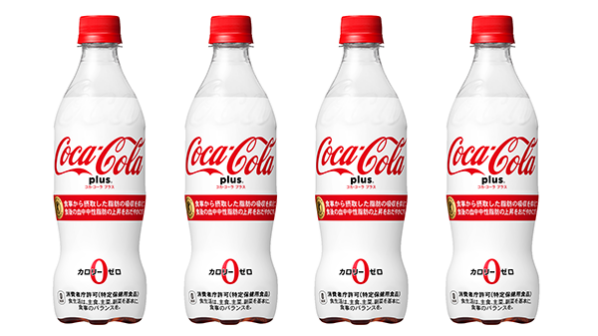Here's What A Nutritionist Thinks About The Trending 'Coca-Cola Plus With Fiber'

Here’s some sad news for soft drink fans — no matter how much fiber you add to Diet Coke, it’s still, well, soda. Last week, the internet was all abuzz about the fiber-filled Coca-Cola Plus after news of the product made its rounds in various outlets, though the beverage company originally announced the product in February. Currently only sold in Japan, the drink contains five grams of indigestible dextrin, a type of added fiber, per bottle, according to a press release.
Read: Daughters From Single-Parent Homes More Likely To Be Obese, Says New Study
Coca-Cola is proudly touting the drink’s entry into Japan’s Food for Specified Health Uses, or FOSHU, a category of goods containing ingredients that have positive health and physiological effects. Foods with this designation must be proven safe and are approved by Japan’s Ministry of Health, Labour and Welfare.
But can a cola ever be considered healthy? The negative impacts of soda consumption have long been documented, with research indicating it’s bad for your kidneys, bones, teeth and heart. We turned to registered dietician Lisa Moskovitz, RD, CDN, and CEO of the New York Nutrition Group, with a few questions about indigestible dextrin, the ingredient found in the much talked about Coca-Cola Plus, and her thoughts on adding fiber to soft drinks.
What should people know indigestible dextrin?
Indigestible dextrin or IDex is a low viscosity, water-soluble dietary fiber obtained by heating an enzyme treatment of potato or corn starch.
What are its health benefits?
Research shows that IDex can help with blood glucose control and regulates blood lipids (cholesterol and triglycerides). It can also help with satiety or appetite control, regulating bowel movements, and promoting healthy gut bacteria.
What foods contain this ingredient in the United States?
There are different types of dextrins used in our food supply, but most show up in commercially baked goods, dressings and sauces, as well as some pills/supplements.
What do you think of adding indigestible dextrin to soft drinks like diet sodas?
I do not think this is a smart thing to add to diet soda as it may encourage people to drink more diet soda, which we already know is not a healthy beverage to consume regularly. By promoting and marketing the drink as containing fiber, consumers may think it is a healthier option.
Can adding fiber to soda counteract its negative effects?
While dextrin and fiber can help slow down absorption of sugar into the blood, it would certainly not have a significant impact enough that would make soda any healthier for you. If soda contains a large amount of added sugars then it will always be an unhealthy choice.
Are added fibers, like those found in yogurt or cereal, ever as beneficial as the real thing?
They can be beneficial in terms of regulating appetite, blood sugars and digestion, but when you get real natural sources of fiber such as fresh fruit, vegetables, whole grains, and nuts/seeds you get in so much more with it. Your body will appreciate the extra nutrients from these whole foods and minimal amounts of additives, chemicals or preservatives that can be found in the added-fiber food products.
If people do want to add a fiber supplement to their diet, which works best?
Metamucil or benefiber are both good options for a fiber supplement, but the best thing to do is increase fiber-rich foods instead.
Read:Even More Reasons Not To Drink Soda: New Study Says It May Increase Dementia And Stroke Risk
Do you foresee “healthy sodas” popping up in America?
I can see it happening, but I definitely will not be directing people towards it.
Bottom line, soda isn’t likely to ever be considered a health drink. That doesn’t mean you can’t enjoy one in moderation — as long as you don’t make it a habit. “Treat soda like a special occasion beverage and get your fiber through real foods instead,” Moskovitz advises.
See Also:
The Earth Day 2017 Diet: How To Eat Environmentally Friendly Foods
Should You Buy Your Food Fresh Or Frozen? Study Debunks Myths On Produce From The Freezer



























